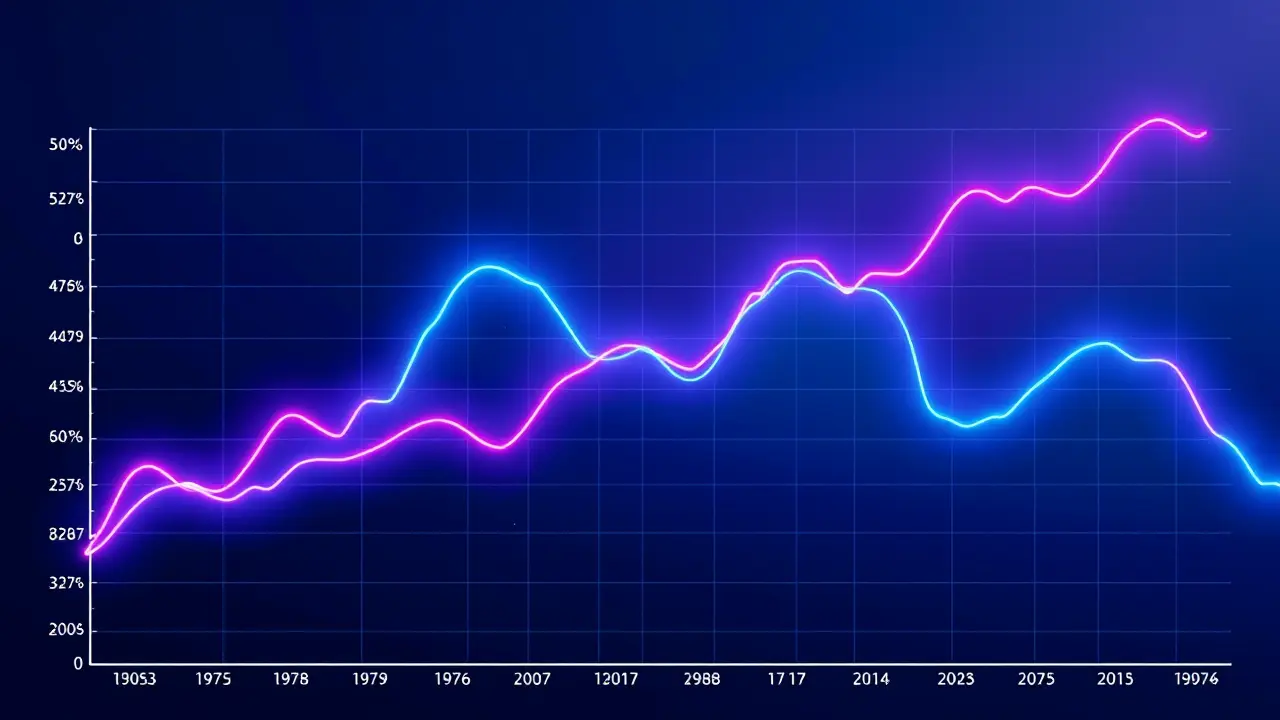
Financestocks
SoftBank's Nvidia Sale Rattles Market, Raises Questions
OL
Olivia Scott
4 hours ago7 min read3 comments
The recent disclosure that SoftBank has offloaded a significant portion of its Nvidia stake has sent a palpable tremor through the financial world, forcing Wall Street to confront a fundamental and unsettling question: does Masayoshi Son possess a foresight that the broader market currently lacks? This isn't merely a routine portfolio rebalancing; it's a strategic move by one of tech's most notorious and, at times, clairvoyant investors, whose Vision Funds have both minted and incinerated billions. The sale, reportedly worth billions, comes at a particularly precarious juncture for Nvidia, a company whose valuation has become synonymous with the AI gold rush.Its chips are the undeniable pickaxes and shovels of this new era, powering everything from OpenAI's ChatGPT to countless enterprise AI initiatives, and its stock has reflected this dominance with a meteoric rise that has defied gravity and skeptical analysts alike. For a fund like SoftBank, which has historically positioned itself on the bleeding edge of technological paradigm shifts, to take substantial chips off the table is an act that demands scrutiny beyond simple profit-taking.It echoes the strategic patience of a Warren Buffett, who famously advised being 'fearful when others are greedy. ' Is Son signaling that the AI-driven euphoria has reached a speculative peak? The context is critical.We are in a period of intense monetary policy uncertainty, with the Federal Reserve's 'higher for longer' interest rate stance slowly tightening financial conditions. While this hasn't yet dampened the insatiable demand for Nvidia's H100 and Blackwell GPUs, it inevitably raises the cost of capital for the very startups and cloud giants that constitute Nvidia's core customer base.A slowdown in enterprise AI spending, however nascent, would directly impact Nvidia's astronomical revenue projections. Furthermore, the competitive landscape is shifting.While Nvidia's CUDA software ecosystem remains a formidable moat, rivals like AMD, Intel, and a consortium of tech giants developing in-house silicon are aggressively chipping away at its hegemony. SoftBank's sale could be a calculated bet that the period of uncontested dominance is waning, and that the risk-reward profile is no longer as compelling.Conversely, this could be a classic case of over-interpreting a single data point. SoftBank has its own internal pressures, including the need to shore up its balance sheet and generate returns for its own investors after a series of high-profile stumbles, from the WeWork debacle to its battered stake in Alibaba.The sale could be less about a bearish outlook on Nvidia and more about funding a new, yet-to-be-announced vision—perhaps in AI software or robotics, areas where SoftBank has signaled renewed interest. The market's reaction, a brief but noticeable dip in Nvidia's share price, reflects this deep-seated ambivalence.It's a tug-of-war between the narrative of infinite AI growth and the cold, hard calculus of valuation. For every investor who sees this as a warning sign from a proven tech oracle, there's another who views it as a buying opportunity, a momentary lapse in an otherwise unstoppable bull run.The true test will be in the coming quarters, as Nvidia's earnings reports either confirm the resilience of its growth trajectory or reveal the first cracks in the AI facade. For now, SoftBank's move serves as a crucial reminder that in markets, as in chess, the most consequential plays are often those that are not immediately understood.
#SoftBank
#Nvidia
#stock sale
#market reaction
#Masayoshi Son
#investor sentiment
#tech stocks
#weeks picks news
Stay Informed. Act Smarter.
Get weekly highlights, major headlines, and expert insights — then put your knowledge to work in our live prediction markets.
Related News
© 2025 Outpoll Service LTD. All rights reserved.














